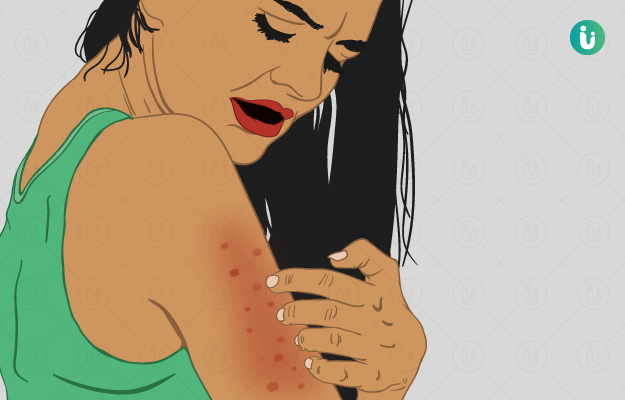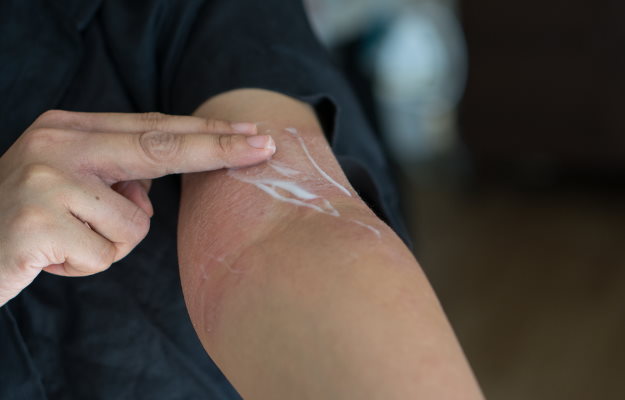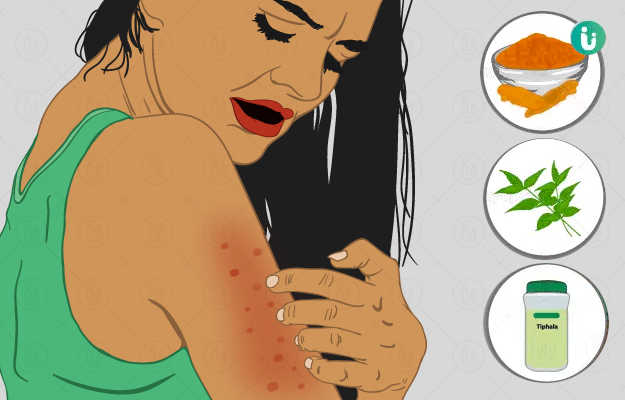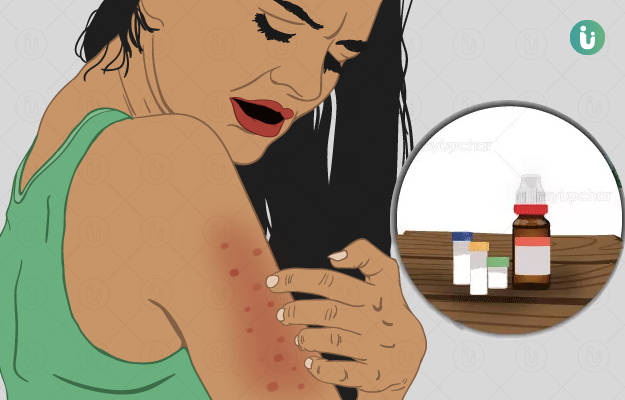What is skin allergy?
An allergy occurs when the immune system of the body reacts unusually to a harmless substance. Normally, the immune system protects us from dangerous diseases; however, people with skin allergy have an oversensitive immune system. Eczema, hives, contact dermatitis and angioedema are the common allergic skin reactions.
What are its main signs and symptoms?
Following is the list of common signs and symptoms:
Eczema and hives are common types of skin allergy and their symptoms help in differentiation between the two. Eczema often appears on the face as an itchy, red or dry skin, which may ooze fluid and crust over on scratching. Hives present as itchy, red and white, raised bumps which can appear anywhere on the body and disappear within minutes to a few weeks. Angioedema (swelling due to fluid accumulation) occurs on the face around the eyes, cheeks or lips. Also, itchy and red skin occurs as a reaction to the allergen in direct contact, causing contact dermatitis.
What are the main causes?
Allergy commonly occurs on exposure to any of the following allergens:
- Latex
- Poison ivy
- Cold and hot temperatures
- Pollen
- Food substances like nuts, shellfish, etc.
- Water
- Insects
- Drugs
- Sunlight
How is it diagnosed and treated?
Your doctor may ask your medical and family history and perform a physical examination. The doctor may also advise a skin test, patch test or blood test to determine your allergens. Skin prick test or intradermal test may be done to confirm the diagnosis. Another definitive test is a physician-supervised challenge test where you inhale or take a small amount of allergen by mouth.
Treatment prognosis for allergy depends on your medical history, results of allergen test and the severity of symptoms. Nasal saline rinse helps reduce symptoms to airborne allergens. The doctor may also prescribe certain medicines like nasal corticosteroids, mast cell inhibitors, decongestants and epinephrine depending on the severity of the allergic reaction. Topical creams containing steroids, oral antihistamines and antibiotics might also be used for symptomatic relief.
However, you should avoid scratching rashes as this will worsen itching. Instead gently rub over the rash with a soft cotton cloth to soothe irritation. Taking a warm bath, moisturizing the affected skin, avoiding contact with bleach, harsh detergents or soaps can help in reducing the symptoms of skin allergy.



 Doctors for Skin Allergy
Doctors for Skin Allergy  OTC Medicines for Skin Allergy
OTC Medicines for Skin Allergy
 Skin Allergy articles
Skin Allergy articles

 Ayurvedic Treatment of Skin Allergy
Ayurvedic Treatment of Skin Allergy
 Homeopathic Treatment of Skin Allergy
Homeopathic Treatment of Skin Allergy







 Dr. Apratim Goel
Dr. Apratim Goel

 Dr. Laxmidutta Shukla
Dr. Laxmidutta Shukla

 Dr. Rachita Narsaria
Dr. Rachita Narsaria











